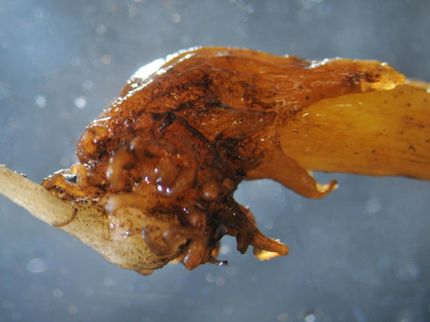Gene evolution process discovered
Advertisement
One of the mechanisms governing how our physical features and behavioural traits have evolved over centuries has been discovered by researchers at the University of Leeds. Darwin proposed that such traits are passed from a parent to their offspring, with natural selection favouring those that give the greatest advantage for survival, but did not have a scientific explanation for this process. The Leeds team reports that a protein known as REST plays a central role in switching specific genes on and off, thereby determining how specific traits develop in offspring.
The study shows that REST controls the process by which proteins are made, following the instructions encoded in genes. It also reveals that while REST regulates a core set of genes in all vertebrates, it has also evolved to work with a greater number of genes specific to mammals, in particular in the brain – potentially playing a leading role in the evolution of our intelligence.
Says lead researcher Dr Ian Wood of the University's Faculty of Biological Sciences: "This is the first study of the human genome to look at REST in such detail and compare the specific genes it regulates in different species. We've found that it works by binding to specific genetic sequences and repressing or enhancing the expression of genes associated with these sequences.
"Scientists have believed for many years that differences in the way genes are expressed into functional proteins is what differentiates one species from another and drives evolutionary change – but no-one has been able to prove it until now."
The Leeds team, in collaboration with scientists in Singapore, examined the repertoire of genes that REST regulates, in particular those which are expressed in the central nervous system. The team compared 16 whole genome sequences in fish, primates and humans to see where and how REST binds to them. Until now, the nature and extent of such variation has been unknown but the present study now completes some significant gaps in this knowledge.
Dr Wood says: "We were curious to look at REST and see what its functions are because it's present in all vertebrates and it is also thought it may have a role to play in certain brain functions, such as levels of intelligence. It was a massive undertaking just to collate all the data required and put it into the right order before we could start any kind of analysis. Our research has not only completed some significant gaps in this knowledge, but has also explained some of the detail behind the process of natural selection, which Darwin correctly identified, but couldn't explain."



























































